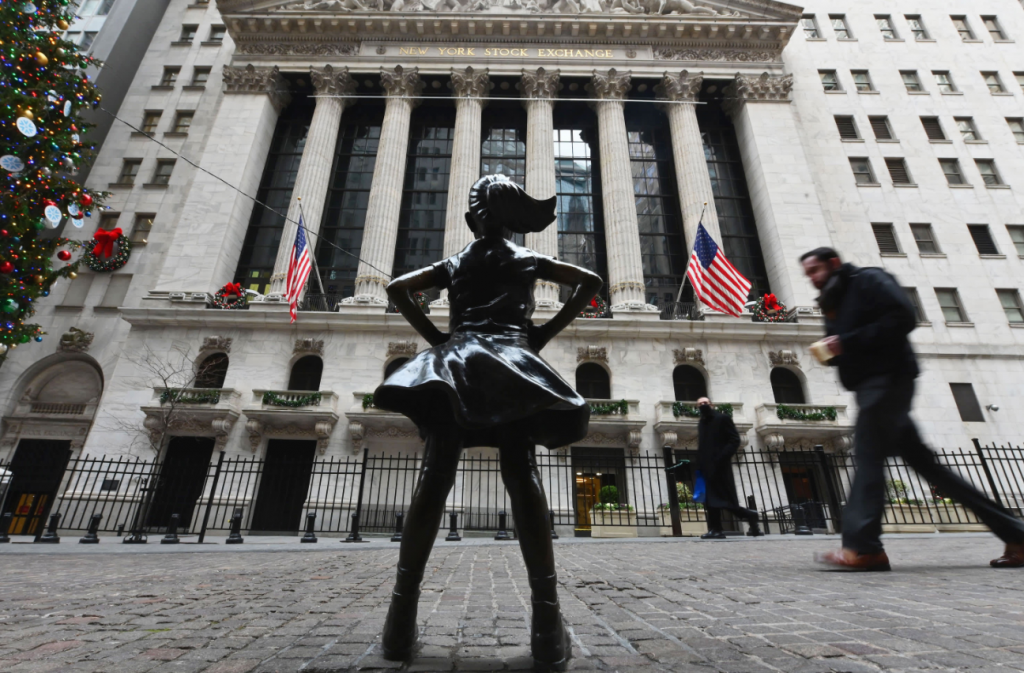
Speculation in the stock market is soaring.
Retail investors have been piling into equities at a rapid rate in the new year, building on 2020′s rush and squeezing short sellers in stocks such as GameStop, up a staggering 685% for the month as of Tuesday’s closing bell.
The GameStop frenzy even caught the attention of billionaires CEOs Chamath Palihapitiya and Elon Musk. Both referenced the action Tuesday on Twitter, with Palihapitiya saying he made an options bet on the stock and Musk sharing a link to r/wallstreetbets, a Reddit page popular with traders.
Also Tuesday, the hedge fund Melvin Capital closed out its short position after taking a huge loss, the manager of the fund told CNBC’s Andrew Ross Sorkin.
Shares of other popular names including Apple have also been seesawing this week on high trading volumes.
To a degree, this is a culmination of how 2020′s macroeconomic events impacted the stock market, said Mark Yusko, CEO, chief investment officer and founder of Morgan Creek Capital Management.
“It’s interesting that we’re talking about GameStop … in a world where investing has truly become gamified,” he told CNBC’s “ETF Edge” on Monday.
During the pandemic lockdown, people have turned to stocks as a way to entertain themselves in the absence of sports betting, Yusko said.
“I do think we’re at a speculative peak,” he said. “We don’t know, but this could be that event, that seminal event that triggers some motion downward.”
While some have compared today’s euphoria to the dot-com bubble peak of the early 2000s, modern technology is a complicating factor, said Ben Johnson, Morningstar’s global head of exchange-traded fund research.
“I can walk around with a supercomputer in my hand, make trades and make options trades all day, every day, in some cases maybe allocating capital that arrived to me via a stimulus check into the markets and see a little animated confetti drop anytime I make some money in the market,” Johnson said in the same “ETF Edge” interview.
“That, I think, has only played on and really exacerbated all of those animal spirits, all of the worst of our behavioral biases,” he said. “Many professionals, many people watching the markets, myself included, have gotten to the point where we’re wondering, are we the crazy ones in all of this? Are we missing something that all these other people aren’t?”
Usually, when those questions arise, it’s time to call the peak, Johnson acknowledged.
“If you can’t ring a bell at the top, it’s probably a good time to start ringing it close enough to the top,” he said.
Bob Shea, CEO and chief investment officer at TrimTabs, pointed to two key differences with the dot-com bubble: the interest rate environment and “much, much healthier” cash positions.
“We focus on free cash flow at TrimTabs, and I’ll just tell you that the Nasdaq 100 from 2000 to 2021 is very different,” Shea said in the same “ETF Edge” interview. “The percentage of the Nasdaq 100 that is free cash flow or cash flow positive is 99% versus 80.”
Shea, who spent over a decade on Goldman Sachs’ trading desk, saw the potential for a near-term correction but said stocks should hold strong further out.
“It feels like the beginning stages of a long-term recovery on the one hand,” and on the other, “this kind of very speculative action that we’re seeing in the last few days,” he said.





























